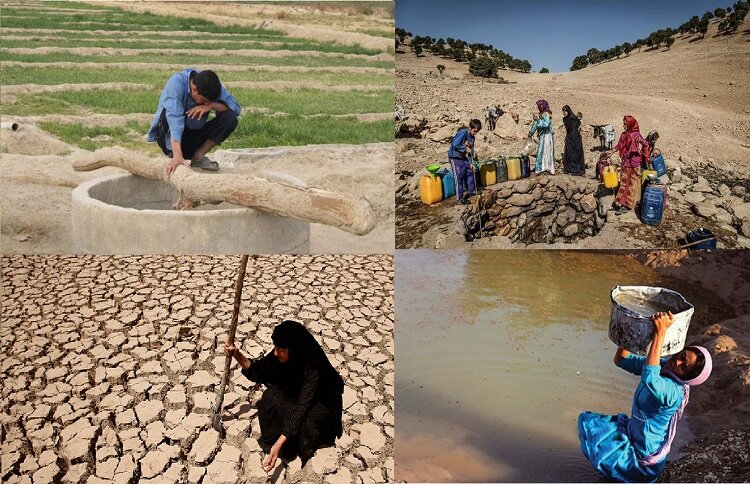Water crisis: a threat to regional and global food security

TEHRAN - Iran is facing an unprecedented water crisis that threatens not only its agricultural sector but also regional stability and global food markets.
Over the past decade, rivers have shrunk, dams are under stress, and groundwater reserves are being depleted faster than they can naturally recover.
This scarcity impacts daily life, industrial activity, and the country’s geopolitical standing.
* The Scale of the Problem
Iran’s water resources are under severe strain:
* Rivers and Reservoirs
Major rivers such as the Zayandeh Rud and Karun have seen dramatic reductions in flow, jeopardizing ecosystems and local agriculture.
* Agricultural Pressure
With nearly 90% of freshwater allocated to farming, declining water availability has led to crop failures, a decrease in arable land, and increased dependence on imported food.
* Urban Supply Challenges
Cities including Tehran, Isfahan, and Shiraz face intermittent water rationing, affecting households, industry, and essential services.
* Regional and Global Dimensions
Iran shares several river basins with neighboring countries, making water scarcity a regional concern.
Tensions over shared resources have increased, while Iran’s growing reliance on food imports places pressure on international markets, affecting prices and supply chains beyond the Middle East.
* Government Response and Public Concerns
Authorities have implemented measures such as dam projects, water transfer initiatives, and incentives for water-efficient irrigation.
However, these efforts are often uneven or insufficient. Public protests, particularly in southern provinces, underscore the urgency and social impact of the crisis.
* Opportunities for Sustainable Solutions
Experts argue that Iran must adopt integrated water resource management, invest in modern irrigation, and plan agriculture based on water availability and climate projections.
Cooperation with neighboring countries could also prevent cross-border tensions and create a framework for sustainable resource sharing.
* Strategic Choices Ahead
Iran’s water crisis is more than a domestic challenge—it is a test of governance, resilience, and diplomacy. Effective management today can stabilize the economy, secure food supply, and enhance Iran’s role as a regional leader.
In contrast, failure risks increased migration, economic disruption, and heightened regional tensions.
The coming years will determine whether Iran can turn this crisis into an opportunity for innovation and cooperation or allow it to escalate into a multifaceted disaster.
Leave a Comment